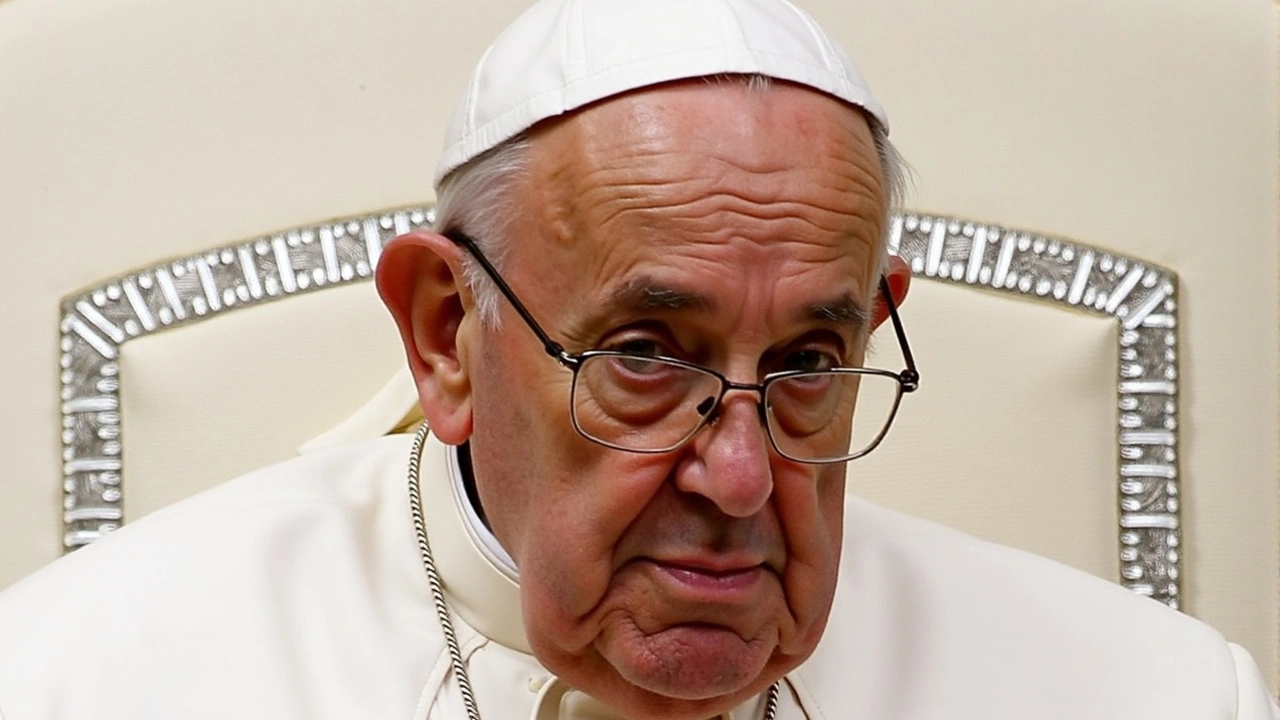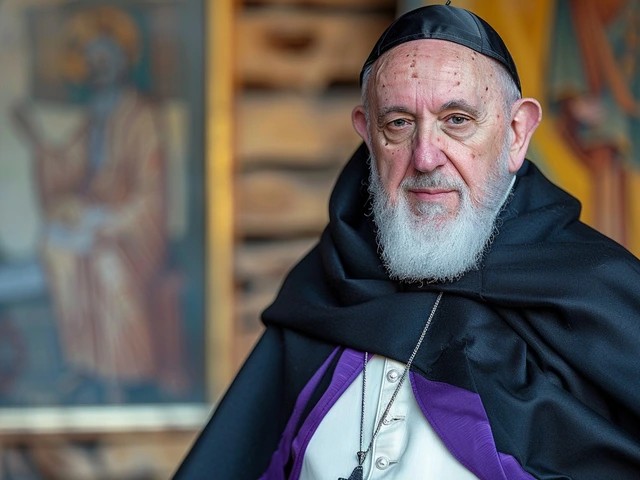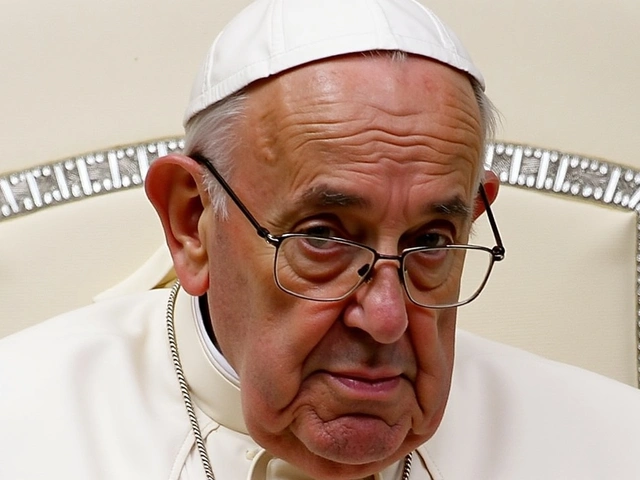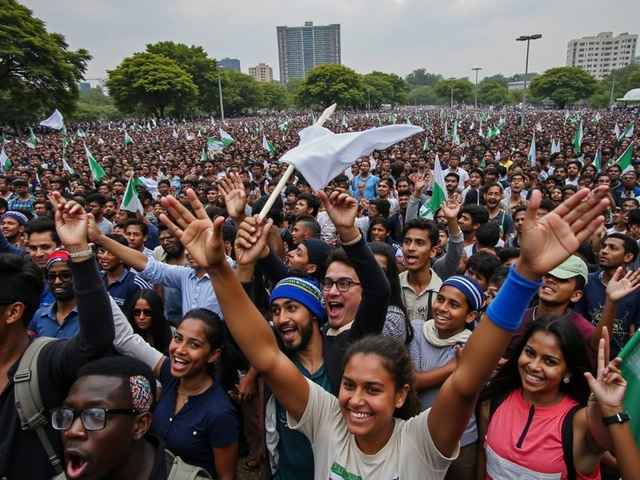Pope Francis Critiques Global Failure to Halt Israel-Hamas Conflict Amid Calls for Peace
Pope's Call for Global Reflection and Peace
Pope Francis has raised a powerful voice against the prevailing global inaction that continues to perpetuate the devastating Israel-Hamas conflict. Speaking to the world through an open letter to the Catholic faithful in the Middle East, the Pope’s words carried a blend of frustration and deep concern as he critiqued the international community's seeming impotence in resolving a struggle that has galloped into a year-long saga of violence and despair. 'A year ago, the fuse of hatred was lit,' he lamented, 'and instead of sputtering out, it exploded into a spiraling vortex of conflict.' His remarks capture an image of a world that, despite an arsenal of historical lessons and peace-promoting rhetoric, remains trapped in the quagmire of conflict, unable to stretch beyond animosity towards constructive dialogue and lasting peace.
The timing of his open address, one year after a catastrophic Hamas attack on Israel, adds a poignant urgency to his call for a compassionate concerted effort for peace. Pope Francis unequivocally decried the cycle of violence, reaffirming that history bears witness to the impotence of violent resolutions, yet nations appear to have learned nothing of substance from the annals of past conflicts. The pontiff did not merely confine his reflections to an abstract desire for peace but declared Monday as a day devoted to fasting and prayers for peace, rallying Catholics globally to engage in spiritual intercession. Such an appeal suggests his steadfast belief in faith as a catalyst for change, reinforcing the power of collective prayer and sacrificial action as conduits for peace.
An Unyielding Critique of Military Actions
Demonstrating a shift towards overt criticism of military actions, the Pope illustrated a growing impatience with Israel's ongoing military campaigns. His recent rebuke of Israeli airstrikes in Lebanon, which resulted in the controversial death of Hezbollah leader Sayyed Hassan Nasrallah alongside numerous civilians, underscored his moral standpoint. By characterizing the airstrikes as morally indefensible, Pope Francis articulated a stance that places human life above political objectives, a principle embedded deeply in his papal agenda. The Pope’s criticism extended into Lebanon, deemed 'unacceptable,' as he urged a global intervention to halt the pervasive fighting and suffering.
These comments are not just isolated critiques but form part of an evolving narrative by the Vatican under Francis’ leadership, championing a neutral stance aimed at diplomacy and human dignity. Francis' pointed appeals underscore an urgent need for an ethical reevaluation of strategies employed in conflicts, stressing that avenues for peaceful resolution are not mere idealistic dreams but necessary elements of political integrity and responsibility.
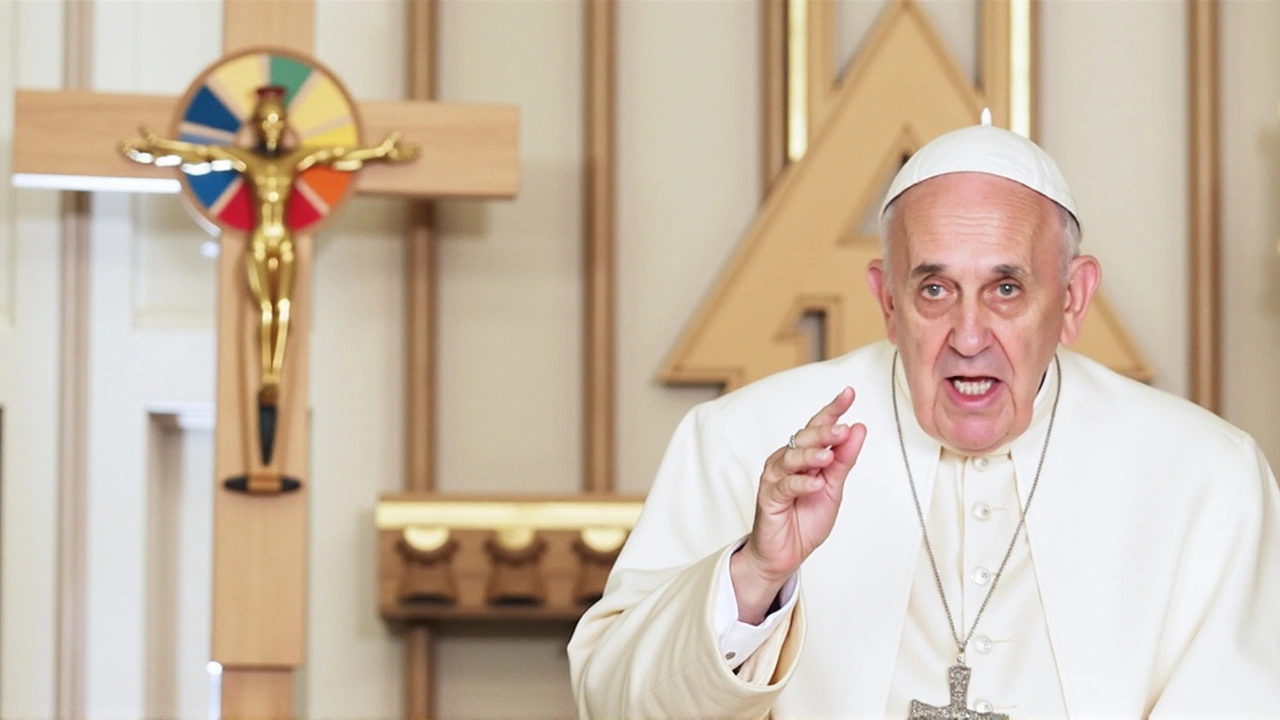
Expressions of Solidarity with Gaza
In his heartfelt address, Pope Francis directly reached out to the people of Gaza, acknowledging their plight amidst the continuing turmoil. His words of solidarity went beyond spiritual gestures, vividly illustrating an empathetic understanding of the everyday horrors that Gazans endure. By proclaiming, 'I am with you, the people of Gaza, long embattled and in dire straits,' he personalized his advocacy, embedding his papal initiative within the framework of human empathy and concern.
The Pope painted a picture of Gazans’ struggles—families torn apart, education disrupted, homes transformed into rubble, and aspirations buried beneath the weight of ongoing siege and survival. His choice to spotlight the palpable fears of Gazans, who 'are afraid to look up for fear of fire raining down from the skies,’ magnifies his call for understanding over enmity, compassion over hostility. This evocative narrative strengthens his call to the world to step into the shoes of those living through such pain, transforming passive compassion into action-driven empathy.
Gleaning Insights from Human Suffering
Beyond the immediate call to end this crisis, Pope Francis impels a broader examination of how the world perceives and responds to conflict. It is a clarion call to revisit the mechanisms of international diplomacy, encouraging global leaders to replace indifference with proactive engagement, and war rhetoric with genuine empathy. The Pope’s words shine a spotlight on the intrinsic human capacity for recognition over dominion, urging policymakers and communities alike to become peace architects.
His statements must be examined not as isolated condemnations but as part of a tapestry woven with hope—a tapestry where every thread is a call for humanity to lead the march towards peace. The Pope’s advocacy transcends religious boundaries, speaking to a universal audience and invoking a shared responsibility. By bridging religious principles with political critique, Pope Francis offers a template for faith to facilitate peace-building—not as a distant ideal, but as an urgent necessity.
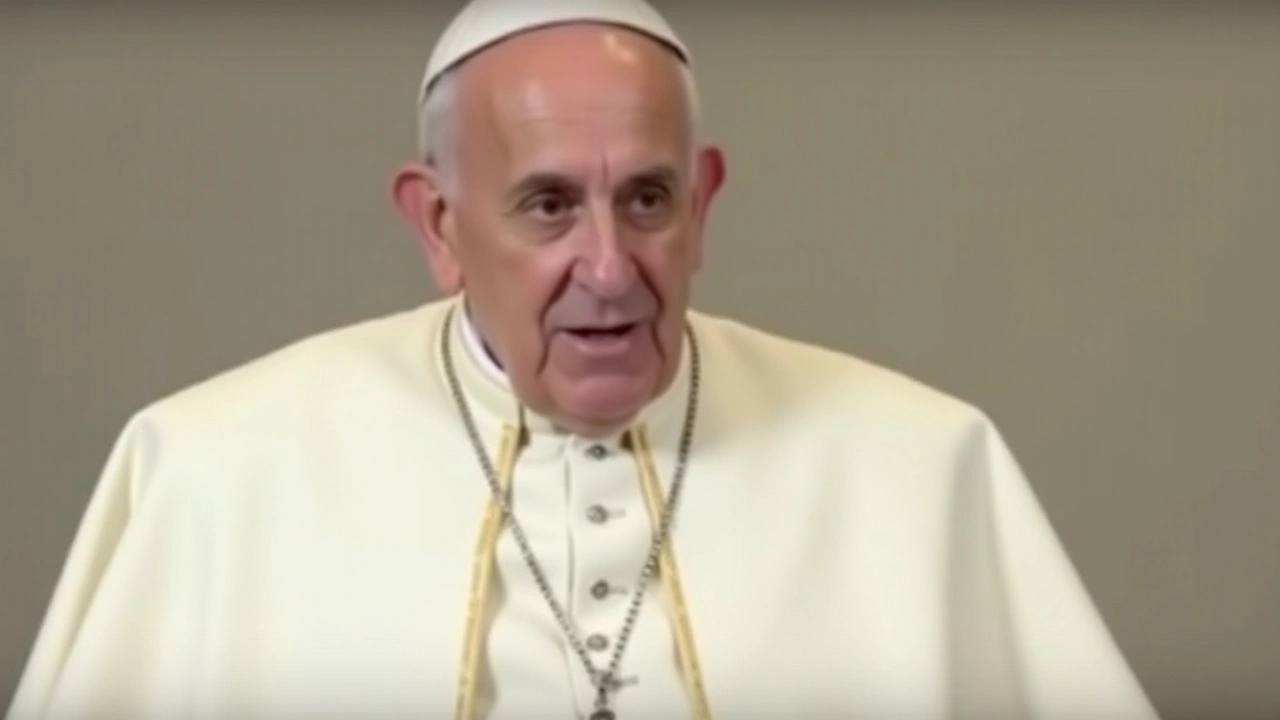
Conclusion: A Papal Vision for Global Harmony
The message conveyed by Pope Francis is potent and profound, a reminder that indifference is not an option in the face of human suffering. As he calls out the 'shameful inability' of the global community, he does so with the intent to awaken dormant consciences and inspire a communal pursuit of peace that transcends borders. This call for action is not merely a papal duty fulfilled but a compassionate outreach toward a fractured world yearning for healing.
In amplifying his critique of military aggression and fostering a dialogue-centric solution, Pope Francis’ vision for peace is anchored in a belief in the transformative power of human solidarity. The pontiff’s advocacy implores individuals and leaders alike to rebuild the architecture of peace through the lens of humanity, showcasing a world where harmony is not just envisioned but actively sought and realized.
